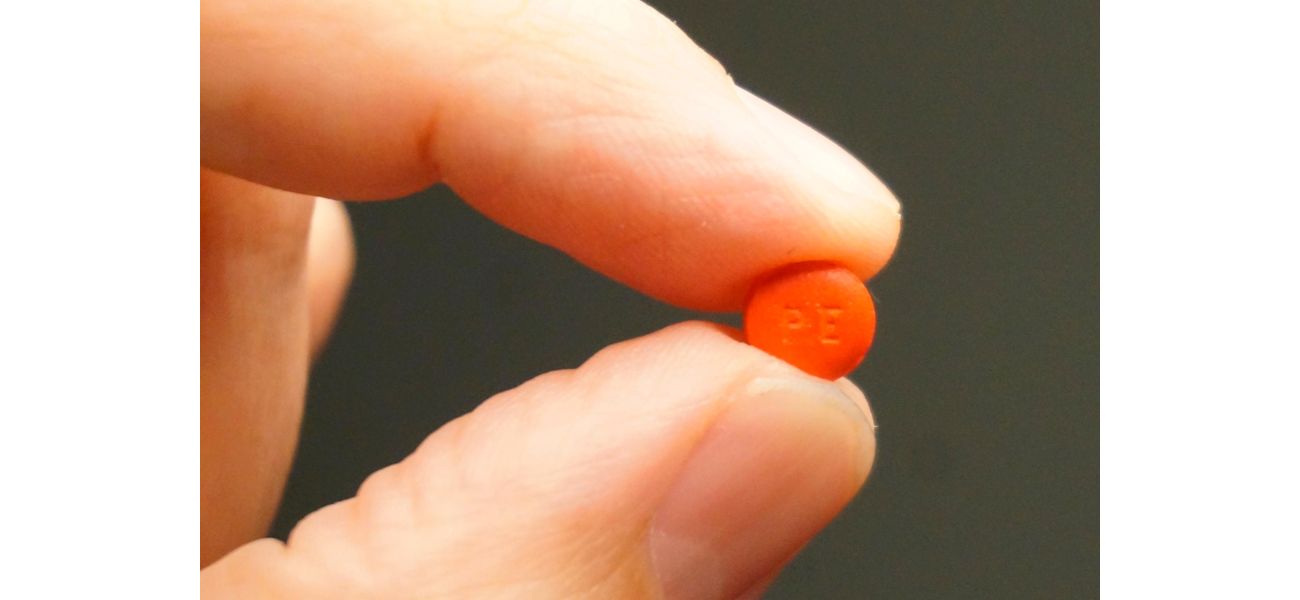FDA finds that decongestants in cold medicines are ineffective. What is the alternative?
Officials in the U.S. plan to remove a popular decongestant from many medications, as it has been determined ineffective for relieving stuffy noses.
December 24th 2024.

Big changes are on the horizon for the cold and cough aisle at your local pharmacy. The federal officials in charge have decided to phase out the use of the most commonly used decongestant in over-the-counter medicines. This active ingredient, phenylephrine, has been found to be ineffective in actually relieving nasal congestion. So, in an effort to improve the effectiveness of these medications, the Food and Drug Administration (FDA) has proposed to revoke its use in pills and liquid solutions. This will likely require drug companies to either remove or reformulate their products.
This decision is a victory for skeptics, including researchers at the University of Florida who have been urging the FDA to re-evaluate the use of phenylephrine since 2007 and again in 2015. For consumers, this may mean having to switch to alternative medications, including an older decongestant that was moved behind the pharmacy counter almost two decades ago.
Doctors agree that this change will benefit Americans. They have been critical of phenylephrine for its lack of effectiveness in treating cold, flu, fever, and allergies. Dr. Brian Schroer of the Cleveland Clinic explains, "People have too many options when they walk into a drugstore. They end up picking something that won't actually help them. Removing phenylephrine will make it easier for them to choose products that will actually work."
But why is the FDA making this change now? Well, this decision comes after a group of experts unanimously concluded that oral phenylephrine medications have not been proven to relieve congestion. After reviewing several recent studies, they found that this ingredient was no more effective than a placebo. They also re-examined older studies from the 1960s and 1970s that originally supported the use of phenylephrine, but found that these studies were flawed and unreliable. It's important to note that this decision only applies to phenylephrine in oral medications, which make up about $1.8 billion in annual sales in the U.S. The drug is still considered effective in nasal sprays, but these are not as popular.
Phenylephrine wasn't always the go-to ingredient for cold and allergy products. Many of these medications used to contain pseudoephedrine. However, in 2006, a law was passed requiring pharmacies to move products containing pseudoephedrine behind the counter due to its potential for being used in the production of methamphetamine. Companies like Johnson & Johnson and Bayer decided to reformulate their products to keep them on store shelves, labeling them as "PE" versions of their well-known brand names.
So, what are some alternatives for treating congestion? Consumers who still prefer pills or syrups for relief will now have to go to the pharmacy counter. The products containing pseudoephedrine, like Sudafed and Claritin D, are still available without a prescription, but purchasers must present a photo ID. Other options include over-the-counter nasal sprays and solutions. Saline drops and rinses are a quick and effective way to clear mucus from the nose. For longer-term relief from seasonal stuffiness, itching, and sneezing, doctors recommend nasal steroids like Flonase, Nasacort, and Rhinocort. However, these are most effective when used daily, so they may not be the best option for those seeking immediate relief. For short-term relief, antihistamine sprays like Astepro can provide faster relief. Phenylephrine-based sprays will still be available on pharmacy shelves, but experts advise against using them as they are not effective when taken orally.
But why doesn't phenylephrine work when taken by mouth? According to the experts, the drug is quickly broken down and rendered ineffective when it reaches the stomach. Professor Leslie Hendeles, from the University of Florida's College of Pharmacy, explains, "This is a good drug, but not when it's swallowed. It's inactivated in the gut and can't reach the bloodstream, so it can't get to the nose." Initially, when Hendeles and his colleagues petitioned the FDA, they suggested that a higher dose might be effective. However, further studies showed that even doses that were 400% higher than the recommended amount did not provide relief. The FDA and other researchers also found that pushing the dosage even higher could pose safety risks, such as dangerously high blood pressure. In fact, phenylephrine is sometimes used during surgery to treat low blood pressure.
So, what happens next? The oral phenylephrine medications will still be available for some time. The FDA is required to follow a public, multi-step process to remove the ingredient from their list of approved over-the-counter decongestants. For the next six months, they will be accepting comments from consumers and companies. After that, they will review the feedback before making a final decision. Even after the final decision is made, companies will likely have a year or more to remove or reformulate their products. However, drug companies could potentially delay this process by requesting additional FDA hearings. In the meantime, the Consumer Healthcare Products Association, which represents medicine makers, is advocating for the products to remain available, stating that consumers deserve the option to choose the products they prefer for self-care. However, Hendeles disagrees, stating, "Our position is that choosing from something that doesn't work isn't really a choice."
This decision is a victory for skeptics, including researchers at the University of Florida who have been urging the FDA to re-evaluate the use of phenylephrine since 2007 and again in 2015. For consumers, this may mean having to switch to alternative medications, including an older decongestant that was moved behind the pharmacy counter almost two decades ago.
Doctors agree that this change will benefit Americans. They have been critical of phenylephrine for its lack of effectiveness in treating cold, flu, fever, and allergies. Dr. Brian Schroer of the Cleveland Clinic explains, "People have too many options when they walk into a drugstore. They end up picking something that won't actually help them. Removing phenylephrine will make it easier for them to choose products that will actually work."
But why is the FDA making this change now? Well, this decision comes after a group of experts unanimously concluded that oral phenylephrine medications have not been proven to relieve congestion. After reviewing several recent studies, they found that this ingredient was no more effective than a placebo. They also re-examined older studies from the 1960s and 1970s that originally supported the use of phenylephrine, but found that these studies were flawed and unreliable. It's important to note that this decision only applies to phenylephrine in oral medications, which make up about $1.8 billion in annual sales in the U.S. The drug is still considered effective in nasal sprays, but these are not as popular.
Phenylephrine wasn't always the go-to ingredient for cold and allergy products. Many of these medications used to contain pseudoephedrine. However, in 2006, a law was passed requiring pharmacies to move products containing pseudoephedrine behind the counter due to its potential for being used in the production of methamphetamine. Companies like Johnson & Johnson and Bayer decided to reformulate their products to keep them on store shelves, labeling them as "PE" versions of their well-known brand names.
So, what are some alternatives for treating congestion? Consumers who still prefer pills or syrups for relief will now have to go to the pharmacy counter. The products containing pseudoephedrine, like Sudafed and Claritin D, are still available without a prescription, but purchasers must present a photo ID. Other options include over-the-counter nasal sprays and solutions. Saline drops and rinses are a quick and effective way to clear mucus from the nose. For longer-term relief from seasonal stuffiness, itching, and sneezing, doctors recommend nasal steroids like Flonase, Nasacort, and Rhinocort. However, these are most effective when used daily, so they may not be the best option for those seeking immediate relief. For short-term relief, antihistamine sprays like Astepro can provide faster relief. Phenylephrine-based sprays will still be available on pharmacy shelves, but experts advise against using them as they are not effective when taken orally.
But why doesn't phenylephrine work when taken by mouth? According to the experts, the drug is quickly broken down and rendered ineffective when it reaches the stomach. Professor Leslie Hendeles, from the University of Florida's College of Pharmacy, explains, "This is a good drug, but not when it's swallowed. It's inactivated in the gut and can't reach the bloodstream, so it can't get to the nose." Initially, when Hendeles and his colleagues petitioned the FDA, they suggested that a higher dose might be effective. However, further studies showed that even doses that were 400% higher than the recommended amount did not provide relief. The FDA and other researchers also found that pushing the dosage even higher could pose safety risks, such as dangerously high blood pressure. In fact, phenylephrine is sometimes used during surgery to treat low blood pressure.
So, what happens next? The oral phenylephrine medications will still be available for some time. The FDA is required to follow a public, multi-step process to remove the ingredient from their list of approved over-the-counter decongestants. For the next six months, they will be accepting comments from consumers and companies. After that, they will review the feedback before making a final decision. Even after the final decision is made, companies will likely have a year or more to remove or reformulate their products. However, drug companies could potentially delay this process by requesting additional FDA hearings. In the meantime, the Consumer Healthcare Products Association, which represents medicine makers, is advocating for the products to remain available, stating that consumers deserve the option to choose the products they prefer for self-care. However, Hendeles disagrees, stating, "Our position is that choosing from something that doesn't work isn't really a choice."
[This article has been trending online recently and has been generated with AI. Your feed is customized.]
[Generative AI is experimental.]
0
0
Submit Comment





